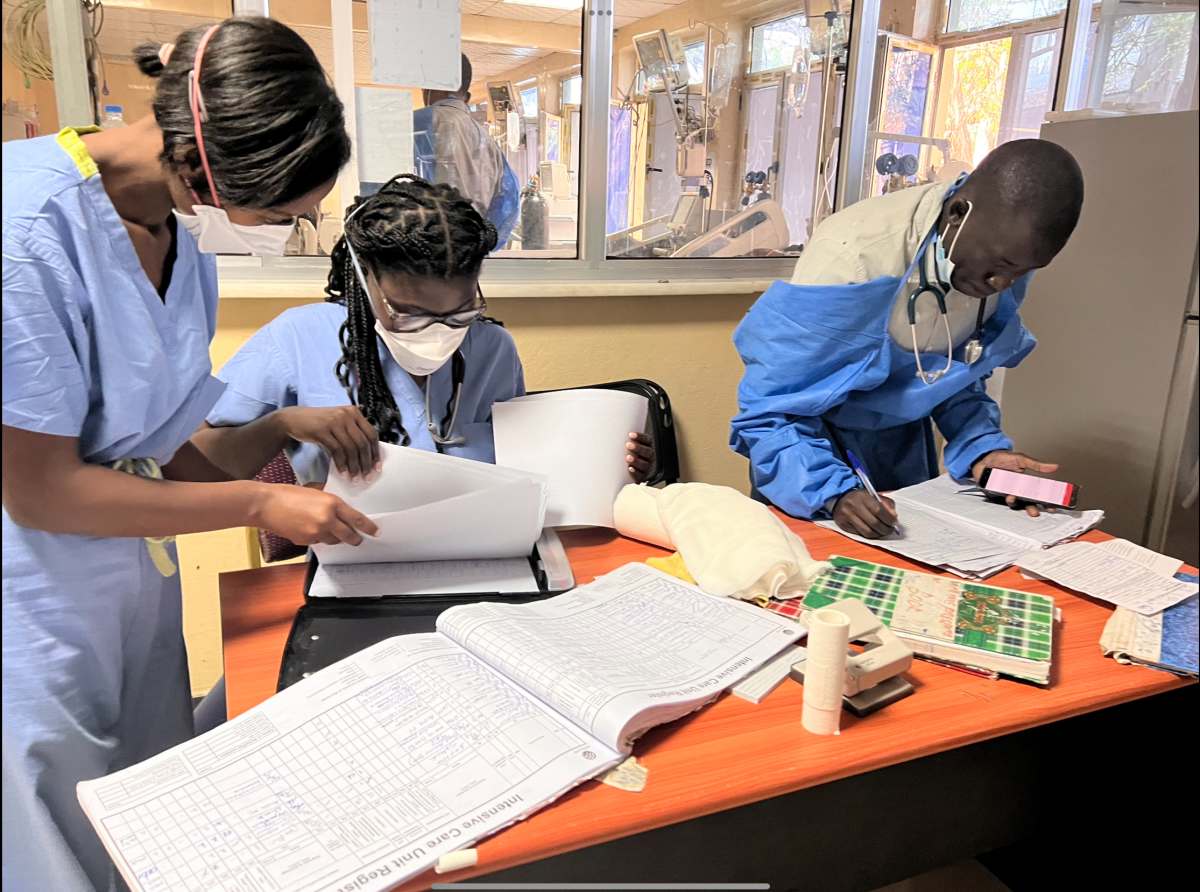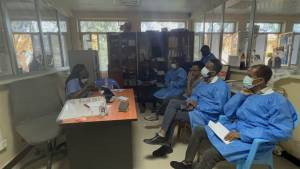This project aims to address multiple critical care issues to improve the quality of care and patient safety in the Intensive Care Unit (ICU) at Adama Hospital Medical Center (AHMC) in Ethiopia. I will be working closely with University of Minnesota physicians with established professional relationships at AHMC as well as local physicians and nurses committed to the project. This project is an extension of an established project that trains the ICU staff at AHMC on mechanical ventilators.
The project intends to address the following critical issues:
Enhance Expertise in Mechanical Ventilation Management: This will encompass the ongoing mechanical ventilation training and educational resources to the staff, ensuring that they continually reinforce the knowledge imparted during the summer of 2023 and systematically assess their readiness and proficiency in managing mechanical ventilation thereby improving quality of care and safety of intubated patients in the ICU.
Communication and Collaboration: Implement a notification system for vital sign changes and ensure that nurses receive adequate training in mechanical ventilator critical event notification and address the concerns in collaboration with physicians. This will help reduce alarm fatigue and allow for promptly addressing concerns that can negatively impact patients.
Multidisciplinary Approach: Incorporate a culture of multidisciplinary rounds at the bedside, which can improve communication between healthcare workers and potentially lead to better patient outcomes. This will also help mitigate overcrowding issues within patient rooms throughout the day, which can positively impact patient comfort and safety.
Medical Supply: Implement a system to ensure an adequate supply of essential medical supplies to prevent the unsafe reuse of items and reduce the risk of adverse events. This will be supported through donations via partnership with US based hospitals.
The population served in this Quality Improvement (QI) project described above is primarily the patients receiving care within the ICU at Adama Hospital Medical College in Ethiopia. This project is focused on improving the quality of care and patient safety within the ICU, with the ultimate goal of benefiting the individuals admitted to this healthcare setting. Additionally, the project indirectly serves the healthcare professionals working in the ICU, including nurses, physicians, and support staff by increasing confidence in managing ventilators, improving communication between healthcare professionals, enhancing collaboration and multidisciplinary approach to the care of the critically ill patient, improving safety by addressing overcrowding in patient rooms, as well as safe and appropriate use of supplies, thereby creating a safer and more effective working environment for the healthcare team, which in turn will have a positive impact on patient care.
1. Improve patient comfort and safety.
2. Reduce adverse events and mortality.
3. Enhance collaboration between healthcare provider teams.
4. Encourage multidisciplinary approach to daily patient care.
5. Enhance supply availability and reduce adverse events.
6. Decrease alarm fatigue and improve communication.
7. Improve knowledge in mechanical ventilation management and troubleshooting critical events
8. Enhance staff satisfaction and morale.
9. Maintain a culture of continuous improvement in patient care and safety within the ICU at AHMC.






Our project focused on improving the quality of care and safety of patients in the ICU.
1. Healthcare workers: Medical trainees were trained to provide formatted oral presentation of the patient’s data. This allowed for clear understanding of the patient’s health status by the multidisciplinary team, directly impacting patient care and safety
2. Patient and Families: Medical trainees were trained to provide updates of patient’s health status to the patients and their families to allow patients and families to appropriately advocate for themselves and their loved ones, directly improving their care
3. This project improved communication between healthcare workers, patients and their families, therefore improved the quality of patient care